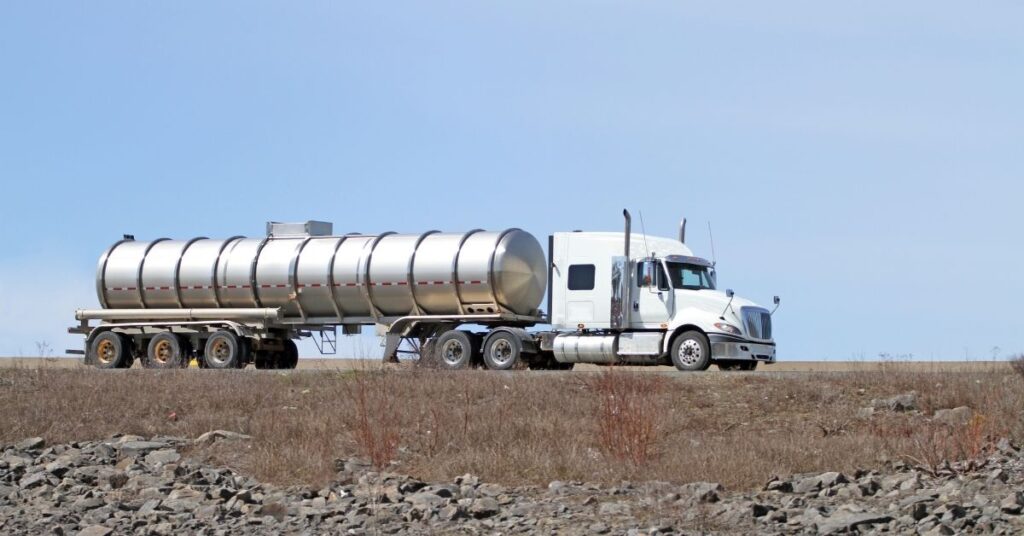Road Warrior’s Series: Managing Haulers
My first response when I hear of systems agreeing to take on Grease and/or Septic discharge to their system is to “just say NO!”
How these materials affect wastewater systems is dependent on two main factors. What is the total volume of flow entering your system and what is the total volume of flow entering your system from septage? Chemical toilets or grease haulers?
In large municipal systems like a Denver Metro, a few thousand gallons of septage or grease occasionally should not have much of an effect on the overall operation.
But if you are one of the many smaller systems that do allow haulers to dump at your facility, you could face many issues that may be detrimental to your system.
How do you offset the issues?
Limit the amount of exposure in gallons or CBOD loading.
Charge higher fees.
Limit the hours for dumping.
Limit the type of exposure, domestic only, industrial only or combination.
What are the issues you could face with these types of materials being discharged to your system?
Types of Septage
Household
Single Family
Multi Family
Apartments
Rest Areas/ RV Parks
Trailer Parks
These discharges may be anaerobic and full of toxic chemicals that have been known to kill wastewater systems. The smaller your system the easier it is to kill.
Industrial
Light
Car/ Truck Washes
Recreation Areas (Fish Cleaning Stations)
Heavy
Manufacturing
Micro Brewery/Distiller/Winery
Oil and Gas Exploration (Man Camps)
Truck Washes
Mechanics Shops
Food, Milk or Cheese Processors
All the above can be loaded with hydrocarbon compounds included petroleum compounds. All of these can either kill your system or cause excessive BOD, TSS and toxic chemical loading.
One of our clients gets killed off monthly from the septage being hauled in from the oil and gas man camps. When I asked him about it, he said he made enough to reinoculated his system with bacteria to restart it.
One of my questions was, “Are they paying you enough to offset the extra dredging costs you may be facing in the future?”
See the list below of other challenging dischargers:
Chemical Toilets
RV and Campers
Special Events
RV Dump Stations – Lock and limit access. We have seen a considerable amount of wastewater plant issues across the country caused by illegal dumping in RV Dump Stations. Toxins like formaldehyde, crystal meth Chemicals and antibacterial products.
There is a credit card lock system available now, so you can charge for use. One system I know of paid for the system and installation in six months after installing it. It now generates a revenue stream for the town.
Illegal Dumping: Yes, it does happen, and it happens often.
Septage
Grease
Crystal Meth
All the above haulers and individuals have been known to pop a manhole cover in town (especially in small towns) and discharge the contents of the pumper truck directly into your sewer system at night.
One of our clients caught a hauler dumping into his collection system at 2 AM, while the local police officer was visiting with the hauler about non-police business.
The police officer did not know it was illegal for the hauler to be popping a manhole cover and discharging to the city.
And then there are the grease haulers.
These are a whole different kind of animal.
Unless you have a facility that requires high CBOD loading to facilitate methane production for your co-generation plant, you probably do not need additional grease loading.
The addition of grease to your system can cause an explosion of increased foaming due to filamentous bacteria (Nocardia and Microthrix).
In my travels I have seen foaming from these two filamentous bacteria six feet high on a digester and clarifiers.
Septage is mostly anaerobic toxic laden material.
Toxins depend on the system, but these days people do not necessarily understand that antibacterial soaps, cleaning agents, formaldehyde, and chlorine will affect their tanks effectiveness and ultimately your wastewater plant.
Another contaminated wastewater is chemical toilets or Porta Johns. These sanitary collectors can be very high in COD, BOD, TSS and chemicals. Chemicals such as formaldehyde that can kill the bacteria in your wastewater system could be present in the discharge.
Unless you have a significant wastewater inflow (minimum of 1 Million Gallons Per Day) you are probably better off sending these materials to a regional plant.
How should you as an operator handle these materials? Drip it into your system.
If possible, contain all these materials in a large tank and micro-feed it into your plant.
If you do not have the ability to store these materials, then they should only be added at the farthest point away from your headworks that you can locate. One that has adequate domestic waste flow to dilute the septic materials.
Always make sure you are charging the right prices for receiving these materials in your system.
You do not necessarily need to be the lowest; in fact, you might want to be the highest for your area.
I have seen systems charge as low as 3 cents per gallon and as high as 25 cents. The average seems to be between 11 and 15 cents per gallon.
The additional cost of these materials can be, but are not limited to, BOD removal, TSS removal, nitrification, denitrification, DO, settling, and sludge removal. And there is always the issue of possible plant kill off.
So, if you need to take on these materials, I ask that you make sure your system can handle the loading and be sure to charge enough for it.
If you have any questions about this article, please reach out.
Rick Allen is available by calling 970-586-3391 or you can email him at [email protected]
©Rick Allen, BioLynceus LLC, June 2021pro


